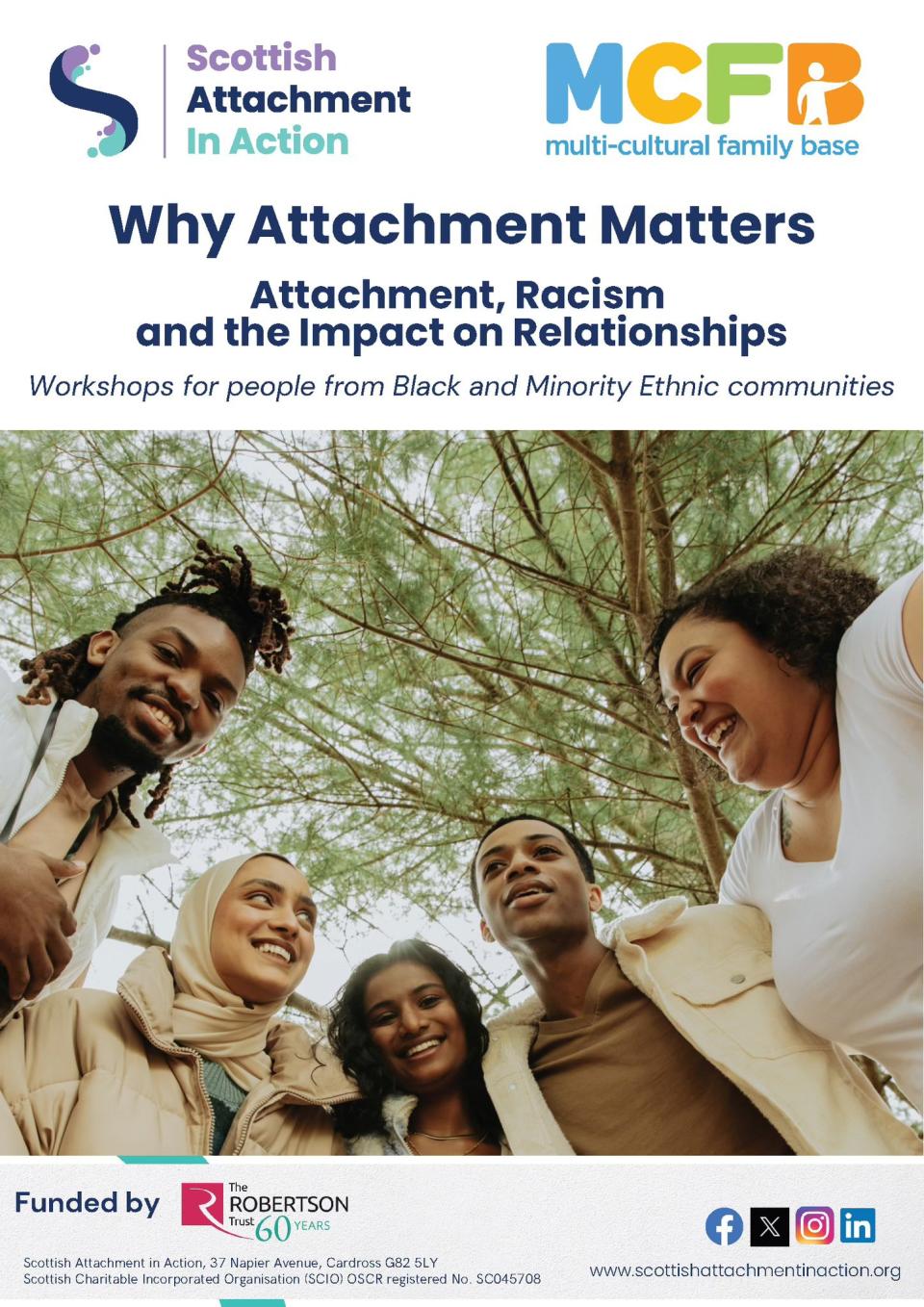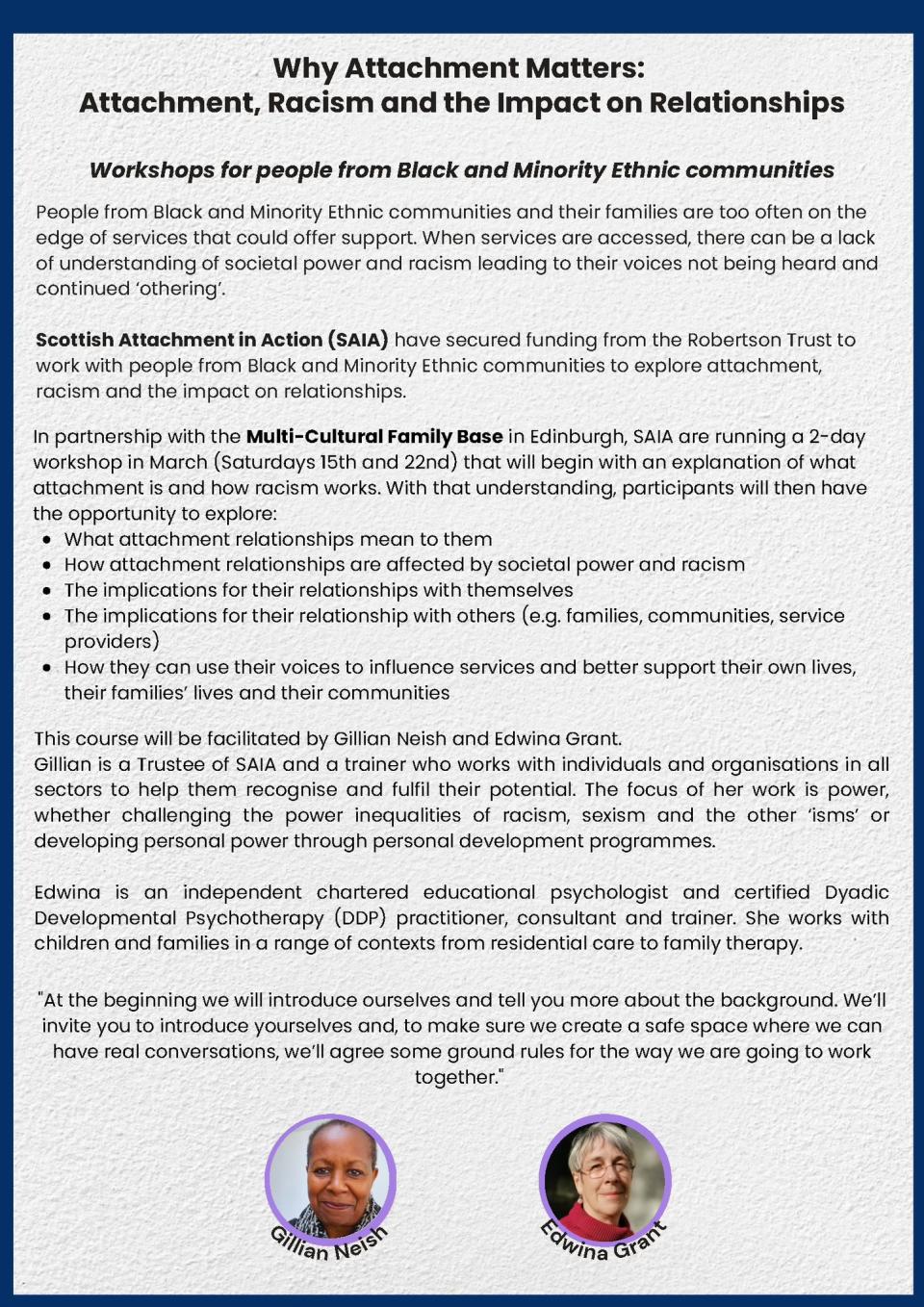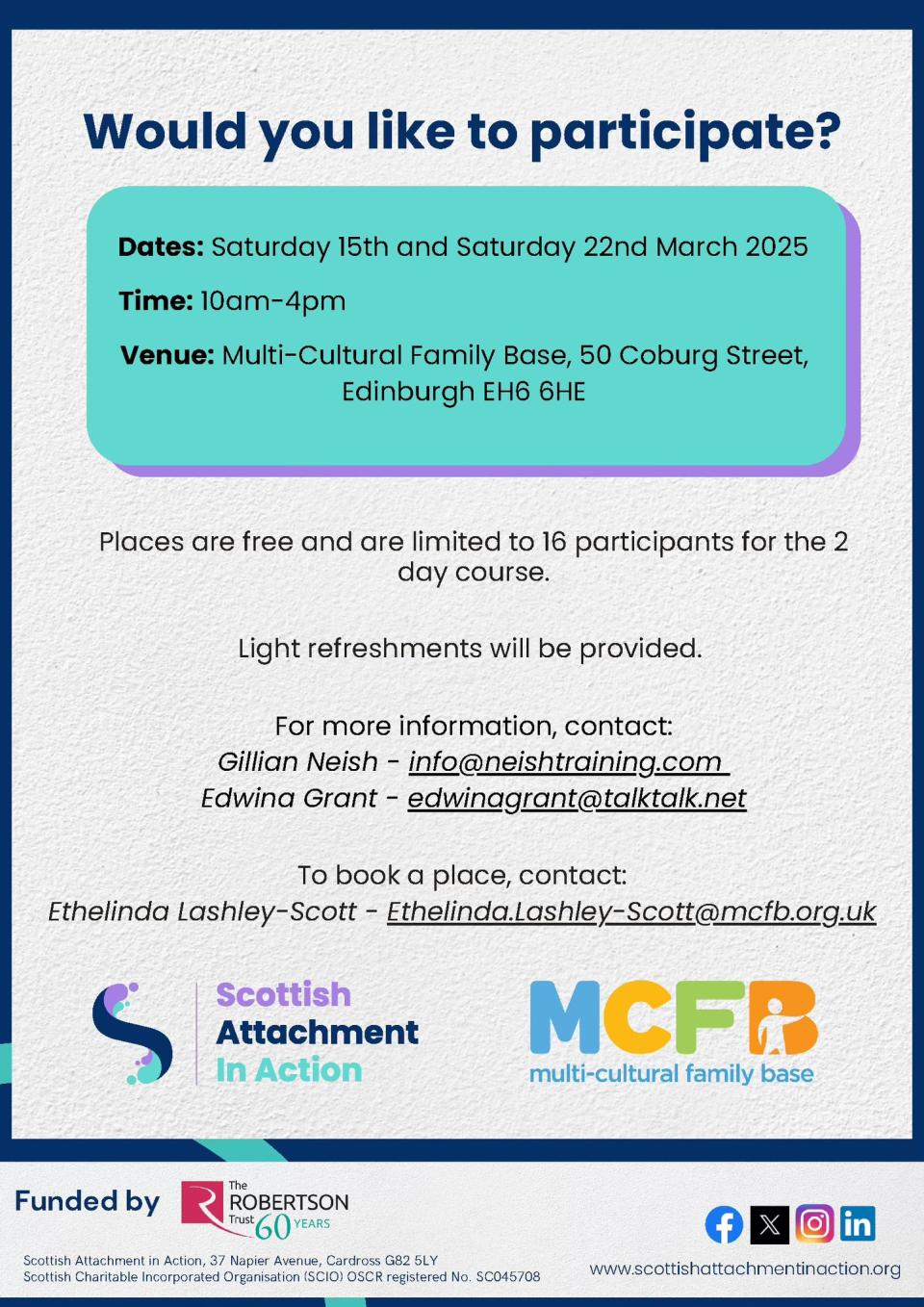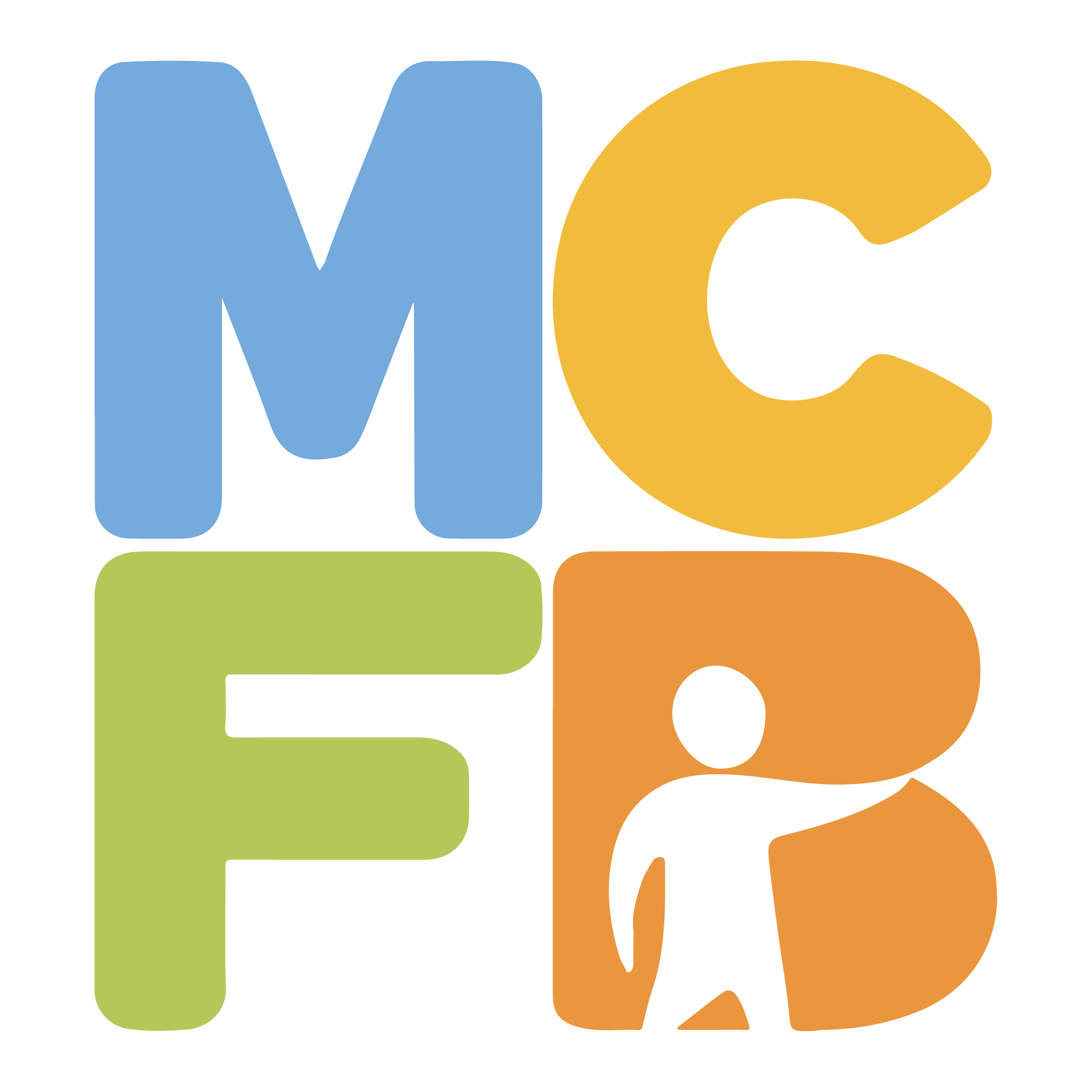Why Attachment Matters: Attachment, Racism and the Impact on Relationships



Why Attachment Matters:
Attachment, Racism and the Impact on Relationships
Workshops for people from Black and Minority Ethnic communities
People from Black and Minority Ethnic communities and their families are too often on the edge of services that could offer support. When services are accessed, there can be a lack of understanding of societal power and racism leading to their voices not being heard and continued 'othering'.
Scottish Attachment in Action (SAIA) have secured funding from the Robertson Trust to work with people from Black and Minority Ethnic communities to explore attachment, racism and the impact on relationships.
In partnership with the Multi-Cultural Family Base in Edinburgh, SAIA are running a 2- day workshop in March (Saturdays 15th and 22nd) that will begin with an explanation of what attachment is and how racism works. With that understanding, participants will then have the opportunity to explore:
- What attachment relationships mean to them
- How attachment relationships are affected by societal power and racism
- The implications for their relationships with themselves
- The implications for their relationship with others (e.g. families, communities, service providers)
- How they can use their voices to influence services and better support their own lives, their families lives and their communities
This course will be facilitated by Gillian Neish and Edwina Grant.
Gillian is a Trustee of SAIA and a trainer who works with individuals and organisations in all sectors to help them recognise and fulfil their potential. The focus of her work is power, whether challenging the power inequalities of racism, sexism and the other 'isms' or developing personal power through personal development programmes.
Edwina is an independent chartered educational psychologist and certified Dyadic Developmental Psychotherapy (DDP) practitioner, consultant and trainer. She works with children and families in a range of contexts from residential care to family therapy.
"At the beginning we will introduce ourselves and tell you more about the background. We'll invite you to introduce yourselves and, to make sure we create a safe space where we can have real conversations, we'll agree some ground rules for the way we are going to work together."

